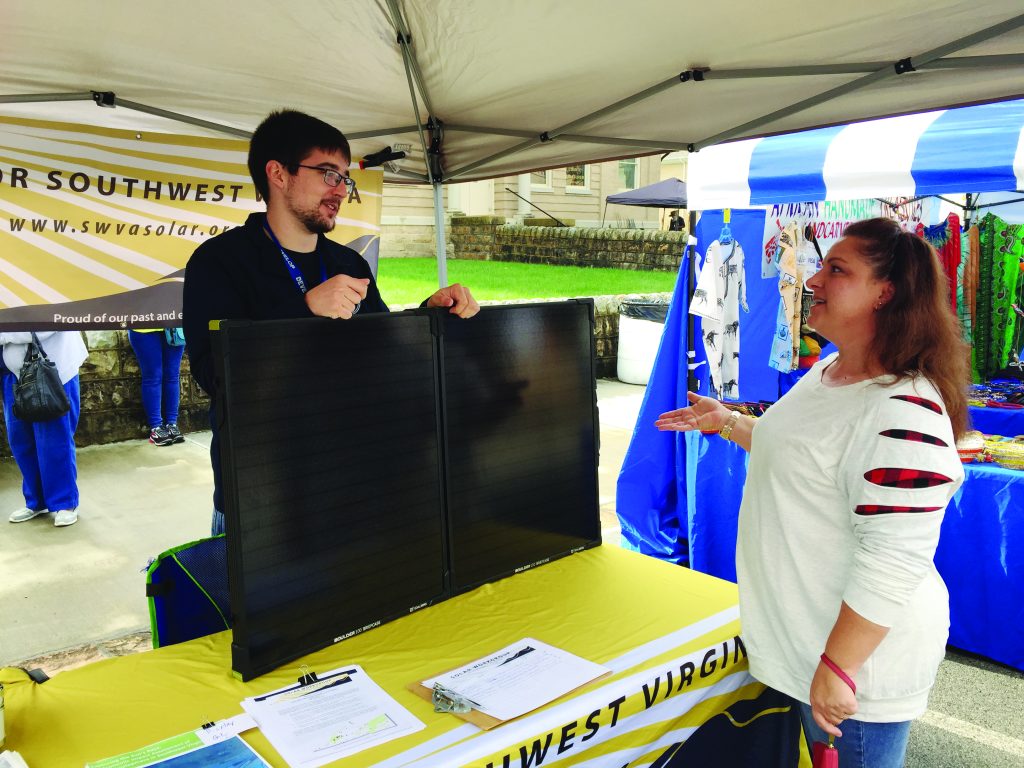Corps of Engineers suspends part of permit for Mountain Valley Pipeline in W.Va.
CHARLESTON WV — The Army Corps of Engineers (Corps) has indefinitely suspended portions of a permit required for construction of the fracked gas Mountain Valley Pipeline (MVP). MVP’s own documents show that they can not complete crossings for the Gauley, Greenbrier, Elk, and Meadow rivers in the time allotted under the permit.
The Corps’s decision is the direct result of a request sent on May 15 by lawyers for Appalachian Voices, Sierra Club and other environmental groups asking the Corps to stay the entire permit until a federal court determines whether it was lawfully issued. The suspension means MVP may have to seek individual permits for those four crossings. However, advocates for clean air and water say that the Corps’s action falls short of what they have asked a federal appeals court for because it lacks a commitment to wait for the federal court to rule and does not apply to all of the pipeline’s stream crossings.
Under section 404 of the Clean Water Act, the Corps is charged with issuing a permit for the pipeline’s stream crossings that allows the project’s builders to trench through the bottom of those streams, including rivers, and fill the crossings with dirt. The permit the Corps issued to MVP is commonly known as a “nationwide permit 12,” which takes a one-size-fits-all approach and is generally viewed as too limited in scope to be used for projects on the magnitude of the MVP, a 300-mile-long pipeline that would cross streams, rivers and other waters in West Virginia and Virginia more than 1,000 times.
One condition of the 404 nationwide permit is that if even one water crossing in a project is ineligible for the permit, it cannot be used for any of them. Another condition on the permit’s use in West Virginia is that MVP cannot take more than 72 hours to complete construction across a stream or river. Since MVP has said the 72-hour limit would not give them enough time to complete construction across four important rivers, they cannot use the permit for any of the other water crossings across the pipeline’s route.
The related legal challenges were filed by Appalachian Mountain Advocates on behalf of a coalition made up of the Sierra Club, Appalachian Voices, Indian Creek Watershed Association, West Virginia Rivers Coalition and Chesapeake Climate Action Network.
Today’s announcement comes less than a month after West Virginia regulators cited MVP for failing to control erosion and just days after several inches of mud ran off MVP construction sites and blocked a road in Franklin County, Virginia.
Peter Anderson, Virginia Program Manager, Appalachian Voices:
“This admission by the Corps provides further evidence that blanket permits cannot protect water quality from large pipeline projects like the Mountain Valley Pipeline. State and federal agencies’ approach—permitting projects with only general conditions instead of site-specific analysis—is like closing your eyes and hoping nothing goes wrong. Citizens along the MVP route are already feeling the consequences.”
Bill Price, Organizing Manager, Sierra Club:
“The polluting corporations behind the fracked gas Mountain Valley Pipeline have proven they can’t be trusted to protect our water supplies. Closer scrutiny isn’t just required for these four river crossings, it’s necessary for the more than 1,000 other streams this project crosses. The Army Corps of Engineers must require MVP to go back to the drawing board and provide specific plans on how they will avoid irreparably damaging our pristine mountain streams. But, since we know these dirty pipelines can’t be built without ruining our water, I say they should just scrap the project completely.”
Anne Havemann, General Counsel, Chesapeake Climate Action Network:
“The Army Corps is using one bandaid to fix 1,000 cuts. We’ve known all along that the one-size-fits-all permit is not up to the task of protecting West Virginia’s waters from the Mountain Valley Pipeline. Today’s action is one more piece of evidence confirming our fears but it doesn’t get close to fixing the problem.“
Angie Rosser, Executive Director, West Virginia Rivers Coalition:
“These four stream crossings signal one big problem – the Corps’ slipshod approach to overseeing this project. West Virginians deserve thoughtful permitting, not thoughtless rubber-stamped approvals.”
Contacts:
Doug Jackson, Sierra Club, 202-495-3045, doug.jackson@sierraclub.org
Cat McCue, Appalachian Voices, 434-293-6373, cat@appvoices.org



